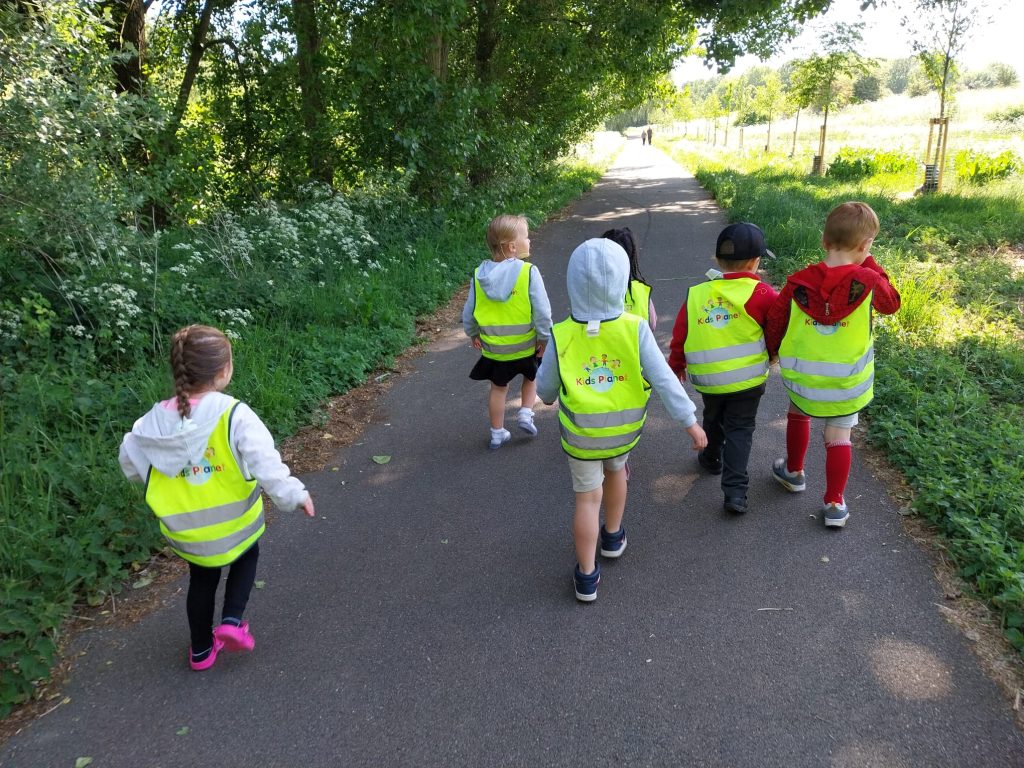
If your day often feels like a jigsaw of naps, snacks and “where did I put the wipes?”, you’re not alone. Routines are the quiet magic that help your little one feel safe, learn faster and enjoy their day.
At Kids Planet, we use calm, predictable rhythms to support children’s early years education and care, while leaving plenty of room for curiosity, cuddles and fun. ❤️
A predictable day helps babies and young children understand what comes next. That sense of “I know this bit” reduces wobbliness, builds confidence and frees up brain space for learning.
Secure attachment grows from warm, responsive care – and that’s easier to offer when your day has a rhythm. The NHS Start for Life explains how bonding and responsive caregiving shape babies’ brains and wellbeing in the early months.
Routines can also ease worries. A regular and predictable routine is comforting for young children and helps them wind down at key points in the day. When children feel safe and know what to expect, they’re more open to play, learning and connection.
Every repeated moment in your day – morning hellos, tidy-up songs, story before sleep – is a chance to practise turn-taking, sharing and naming feelings. UNICEF’s Care for Child Development resources show how simple daily play-and-talk routines build attachment and early learning at home and offer practical play suggestions families can adopt.
Predictable sequences such as “wash hands, snack, story” help develop executive function – the brain’s “air traffic control” for attention, memory and planning. The Center on the Developing Child at Harvard explains these skills and how early experiences strengthen them. Their age-based ideas are brilliant for home, including offering guided choices to build self-control.

Every child is different. Flex your routine for sleep needs, sensory preferences, neurodiversity and family life. The EYFS statutory framework expects inclusive practice and daily outdoor opportunities, with reasonable adjustments where needed.
If your child has additional needs, work with your setting’s SENCO and keep communication flowing so home and nursery routines feel joined-up.
For babies and toddlers, responsive caregiving sits at the heart of any good routine. Short, repeated, playful interactions are powerful for brain development and bonding
Aim for a calm wind-down and a familiar sequence before sleep, such as bath, story and cuddle. Small, steady steps work – bring bedtime forward by 5 to 10 minutes each week until you reach your goal (NHS: Sleep and young children). Consistency is comforting and helps little bodies learn what happens next.
Offer regular, unhurried mealtimes with a variety of tastes and textures. The NHS has a clear guide on what to feed young children as appetites and routines evolve.
We blend adult-guided invitations with child-led exploration, sensory experiences and loose parts play to fuel curiosity and problem-solving. If you’d like to try loose parts at home, this practical toolkit shows the why and the how.
Short, screen-free pauses help bodies and brains reset, supporting attention and self-regulation. Winding down before bed is especially helpful (NHS: healthy sleep tips for children).
Fresh air boosts mood, movement and language. The EYFS expects access to outdoor learning or daily planned outdoor activities as part of high-quality early years education and care. At Kids Planet, our gardens, nature areas and Udeskole approach take learning outdoors in all weathers.
Moving from one activity to the next can be tricky. Try these evidence-informed ideas:

There isn’t one “perfect” routine, only the one that works for your family. Start small, keep it kind and consistent, and let your child’s interests lead the way. You’ve got this – and we’re here to help.
Pop in for a visit to your nearest Kids Planet nursery and chat with our team about routines, outdoor learning and funded childcare options. We’ll help you build a rhythm that fits your child and your family.
© Copyright 2025 Kids Planet Nurseries - All Rights Reserved.